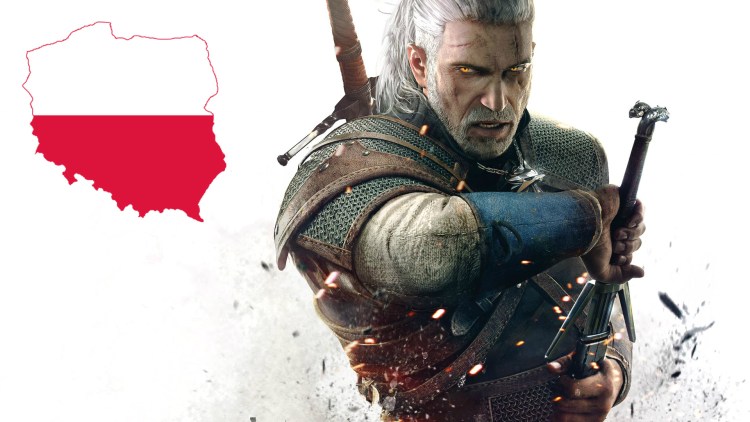After The Witcher
Things didn’t work out so well for CD Projekt after the initial success of The Witcher. The company started work on a console version of the game, The Witcher: Rise of the White Wolf, at the request of its worldwide publisher, Atari. It outsourced this project to France, and the resulting mess nearly brought CD Projekt Red to its knees.
Karol Zajaczkowski, now head of marketing at 11 Bit Studios, was working at CD Projekt Red at the time. He went to the French studio making White Wolf and what he saw surprised him.
“We are good at hard work,” he told me. “People in Poland can work hard if they believe in something. I worked on The Witcher, previously. I’ve seen people pushing to the limits to finish the game and deliver the best game ever. At the very same time, the company that was working for us in France, they came to work, like, at 11 a.m., left at 4 p.m., and they were quite surprised that there were no results. They spent half the time drinking coffee.”
White Wolf development was problematic, and CD Projekt had already sunk a lot of money into the project. Eventually it decided to pull the plug, but it was left in financial turmoil and had to lay off staff.
In hindsight, that wasn’t actually a bad thing, as Daniel Sadowski — seasoned developer, ex-CD Projekt employee, and organizer of the game development course at Warsaw’s Polish-Japanese Institute of Information Technology — explained to me.
“Five, six years ago when CD Projekt were in trouble, lots of people were fired or left the company,” he said. “Many new studios formed because of that. Change is good.”
So from the temporary collapse of CD Projekt, which would go on to rebuild itself and release The Witcher 2 to worldwide acclaim, the Polish gaming industry suddenly became a lot more diverse. Smaller developers, like 11 Bit Studios, sprang up to sit alongside CD Projekt Red and other more established companies like Techland, Epic Games Poland, and CI Games. They rose from the ashes, as the city of Warsaw once did after World War II.
Sadowski now estimates that there are between 200 and 300 gaming studios in Poland, employing around 2,000 people.
Strength of economy
Poland’s gaming industry is part of a national trend for growth. Sitting alongside more traditional Polish businesses, like coal mines and breweries, are a staggering number of tech startups and creative studios doing some amazing things. Driving these young companies are self-motivated, self-taught individuals who’ve fought their way to where they are.
While the world was suffering a financial crisis in 2008 and 2009, Poland emerged relatively unscathed. The gross domestic product of the European Union contracted by 4.5 percent in 2009, and Poland was the only country in the union whose economy grew, by 1.6 percent.

Above: A panorama of Warsaw’s Castle Square. Everything was rebuilt after World War II.
“We are the only country in Europe that really did cope well with the financial crisis,” Katarzyna Kacperczyk, the Undersecretary of State at the Ministry of Foreign Affairs, told me. “We didn’t have recessions — we’re noting constant positive growth.”
The secret, Kacperczyk joked, was, of course, “sound policy by the Polish government.” She then explained that at the start of the post-communist transformation, Poland built a strong financial market, with good supervision. As a result, Polish banks didn’t lend irresponsibly, unlike their international counterparts, and the country doesn’t have issues with bad consumer credit.
“This is one of the biggest successes of Polish transformation,” said Kacperczyk. “We managed at the beginning to introduce and build up a very healthy financial market.”
CD Projekt Red is now part of that financial market, having joined the Warsaw Stock Exchange in 2008 when it acquired a failing Polish computer company, Optimus, in a reverse takeover. The move enabled CD Projekt to expand. “If you want to create a triple-A game, you need solid investments,” said Platkow-Gilewski.
Now, investors can also buy into smaller studios, like 11 Bit, through NewConnect, a new financial market aligned to the Warsaw Stock Exchange that specifically supports the growth of young companies.
In turn, many of these creative studios are helping make sure there’s enough of the other key resource needed for the industry to continue growing — talented people.
They’re hoping that continued growth allows them to compete on a global scale, something which Kacperczyk believes the game industry can do, even if it means having to fight its corner with more established markets.
“It is possible,” she told me. “Perhaps challenging, but possible to do.”
That was part one of our in-depth look at the growth of the Polish gaming industry. Join us tomorrow to read part two, including some very personal journeys into development, a look at how Poland is coping with a lack of new tech talent, and a brief encounter with a very sad panda.
VentureBeat's mission is to be a digital town square for technical decision-makers to gain knowledge about transformative enterprise technology and transact. Learn More


